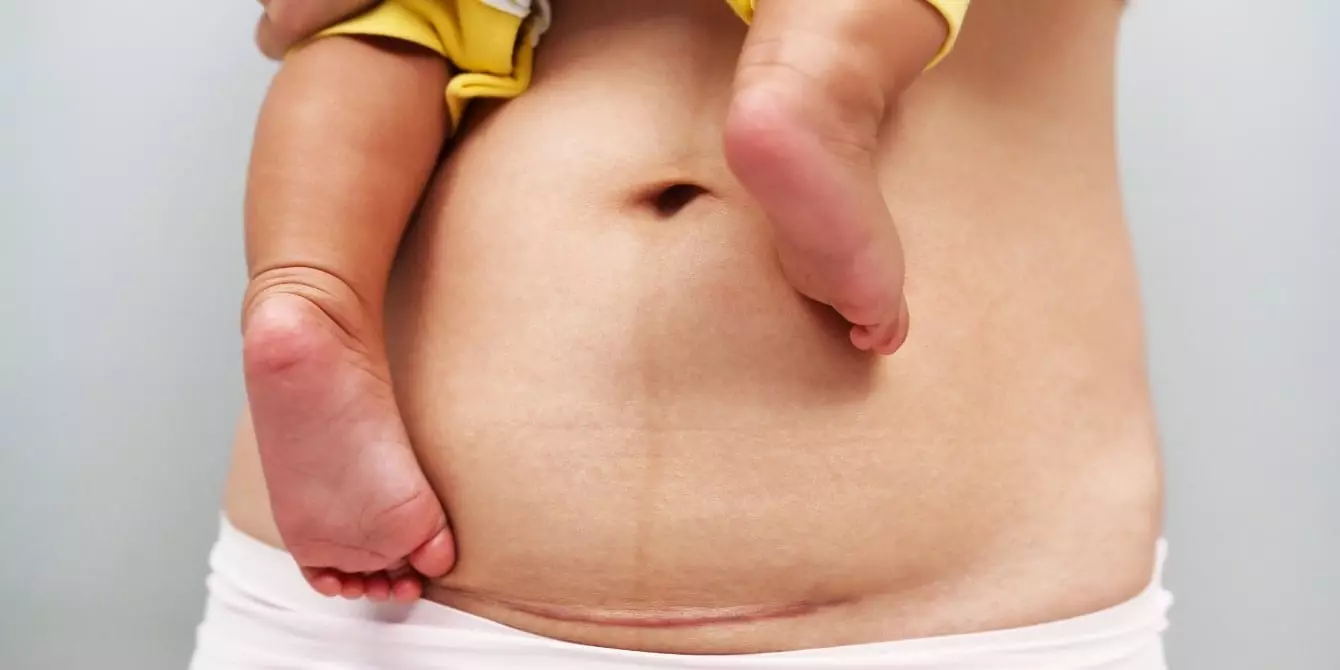Having a child is often painted as the most beautiful experience in life. However, for many mothers, the journey is fraught with unexpected challenges and hitting emotional roadblocks. My experience delivering my son was a moment that would forever change me, highlighted by an uninvited C-section scar. This journey is not merely about coping with physical changes but encompasses a deep emotional exploration that frequently flips from love to resentment.
When the time came for me to give birth, I found myself in an unexpected situation. My doctor conveyed the possibility of a “partial molar pregnancy,” a term that lingered ominously in my mind amidst the excitement of impending motherhood. As I deliberated my options, I understood the weight of my choice in deciding on a scheduled C-section. In conversations with family, they insisted it was the easier path, but I felt a churning conflict inside me. It’s deceptively simple to encourage a decision when one is not the one lying awake on an operating table, anxious about what could go wrong and overwhelmed by the surgical team preparing for a procedure that would fundamentally reshape my body and identity.
I had previously experienced a straightforward vaginal delivery, so the contrast with this birth choice was striking. The anticipation of holding my newborn was blurred by a sense of helplessness, which felt magnified under the harsh fluorescent lights of the hospital room. Ultimately, despite the ‘okay’ prognosis from my medical team, I bowed to the fear of complications, making the decision that would leave a physical mark on me forever.
In the days following the surgery, a wave of emotions flooded over me like a relentless tide. The C-section scar, a bright and angry line across my abdomen, was a harsh reminder of my perceived failure—my inability to experience a “normal” birth. The discomfort I felt did not just originate from the physical healing; it intertwined with the emotional trauma of not having my child immediately placed in my arms. Each time I limped through my home, the aching throb of my scar echoed my internal struggles.
Handling the needs of my family, particularly that of my older son, only intensified the remorse I felt each time I couldn’t lift him or embrace him as I wished. The guilt coiled tightly in my chest, leaving me feeling worthless, a sentiment starkly at odds with the joy a new mother is typically expected to feel. As I nursed my newborn, the painful sensations emanating from my scar underscored a truth I desperately wanted to deny: I felt broken.
Over time, society’s counsel emerged through the low hum of social media—“Just be grateful,” “You’re not alone; so many women have C-sections.” While this feedback was meant to comfort, it was dissonant with my experience. The perfect, curated images showcased on Instagram belied the emotional struggles that lay beneath the surface. In conversations with friends, I learned that many shared my ambivalence toward their scars. For some, their scars were mere physical marks; for others, they represented beautiful milestones. I, too, found myself struggling with contradictory emotions, learning to navigate the complexities woven into my existence as both a mother and an individual.
In the sanctuary of my shower, where tears and water mingled freely, I often felt alone in my grief. Yet, as days slipped into weeks, something transformative began to happen. I started to explore what the scar really meant to me, transcending the anger and resentment. The narrative shifted from one of defeat to one of resilience. That harsh surgical line served as proof—a tangible reminder of my body’s strength and the life it nurtured.
Reflecting upon this journey, I now find a strange sense of admiration for my C-section scar. It is, in the end, not just a permanent reminder of a difficult birth story; it has become emblematic of the transformative power of motherhood. I can recognize the duality of my feelings—simultaneously loving and hating this scar—for it represents an integral part of my life.
At this point in my journey, I embrace both the beauty and the struggle inherent in it. My feelings of disappointment do not diminish my overwhelming gratitude for the healthy child I now have. Rather, they ground me in the rich tapestry of motherhood. I have evolved, and so has my relationship with that scar. I can touch it now without wincing; I can see it in the mirror and acknowledge it as evidence of my strength.
Every scar tells a story. My C-section scar tells of a poignant journey enriched by struggles, resilience, and transformation—an everlasting testament to my motherhood and the intricate layers that make me who I am today.

